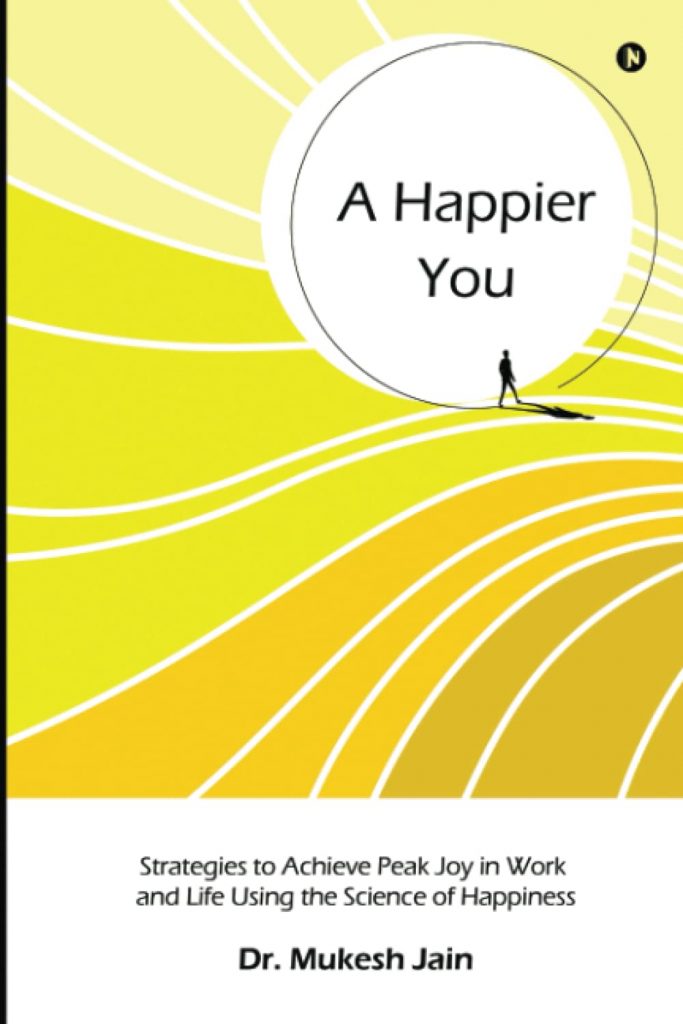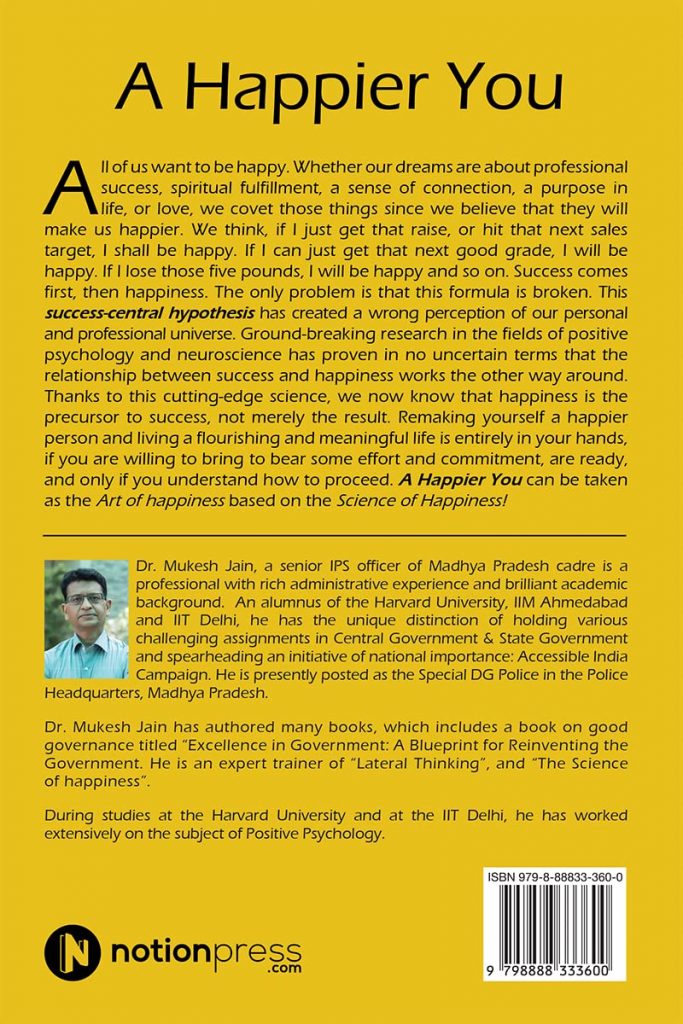
Authored by Mukesh Jain (PGP 1986) He joined the Indian Police Service, Madhya Pradesh Cadre, after his PGDM at IIMA. Further to this, he obtained his Master of Public Administration from The Kennedy School of Government, Harvard University. At the Kennedy school, he got hooked on the subject of Positive Psychology and pursued the subject in depth while completing his PhD at the Indian Institute of Technology, Delhi (Department of Management Studies). He calls his book ‘A Happier You’ as ‘the Art of Happiness’ based on ‘the Science of Happiness’.

All of us want to be happy!
We may not admit it openly or decide to frame our desire in different words. Whether our aspirations are about career success, material fulfillment or family happiness, we desire these things because we believe that they will ultimately make us happier.
Happiness has become a fad today, with the market full of books, quotes, blogs on the topic, articles in periodicals, newspapers and magazines, television, documentaries and more. Unfortunately, most of these articles/information pieces are relatively uniformed and not supported by scientific evidence or empirical data.
There is an equation of life which has been taught to us subtly or not so subtly by our parents, teachers, and our bosses. That is: If you work hard, you will become successful, and once you become successful, then you will be happy. We have been, since our childhood, brought up to believe that hard work is a necessary precursor to Success, which in turn is a prerequisite to Happiness in life. More than a decade of ground-breaking research in the fields of positive psychology and neuroscience has proven that the relationship between success and happiness works the other way around. With millions of research studies conducted all over the world, we may now assert with certainty that happiness is the precursor to success, not merely the result.
Positive Psychology has created a Paradigm shift in human thought in the twenty-first century, what the Copernican revolution did in the 16th Century. It took 140 years for the Copernicus Revolution to spread and get accepted widely. Positive psychology research has only completed about 25 years, and we are on the verge of the second revolution in our worldview.
Studies by many psychologists, like Sonja Lyubomirsky, Martin Seligman, Daniel Gilbert, suggest that while about 50% of our happiness may be genetic, only 10% is related to external circumstances and a huge 40% is dependent on our thoughts and actions. Based on their review, these psychologists suggested that there is considerable potential for people to take action to influence their own happiness.


